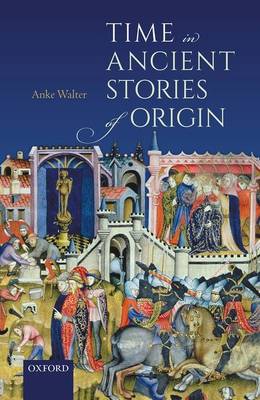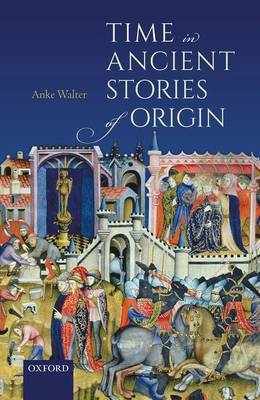
- Retrait gratuit dans votre magasin Club
- 7.000.000 titres dans notre catalogue
- Payer en toute sécurité
- Toujours un magasin près de chez vous
- Retrait gratuit dans votre magasin Club
- 7.000.000 titres dans notre catalogue
- Payer en toute sécurité
- Toujours un magasin près de chez vous
Description
Greek and Roman stories of origin, or aetia, provide a fascinating window onto ancient conceptions of time. Aetia pervade ancient literature at all its stages, and connect the past with the present by telling us which aspects of the past survive even now or ever since then. Yet, while the standard aetiological formulae remain surprisingly stable over time, the understanding of time that lies behind stories of origin undergoes profound changes. By studying a broad range of texts and by closely examining select stories of origin from archaic Greece, Hellenistic Greece, Augustan Rome, and early Christian literature, Time in Ancient Stories of Origin traces the changing forms of stories of origin and the underlying changing attitudes to time: to the interaction of the time of gods and men, to historical time, to change and continuity, as well as to a time beyond the present one. Walter provides a model of how to analyse the temporal construction of aetia, by combining close attention to detail with a view towards the larger temporal agenda of each work. In the process, new insights are provided both into some of the best-known aetiological works of antiquity (e.g. by Hesiod, Callimachus, Vergil, Ovid) and lesser-known works (e.g. Ephorus, Prudentius, Orosius). This volume shows that aetia do not merely convey factual information about the continuity of the past, but implicate the present in ever new complex messages about time.
Spécifications
Parties prenantes
- Auteur(s) :
- Editeur:
Contenu
- Nombre de pages :
- 292
- Langue:
- Anglais
Caractéristiques
- EAN:
- 9780198843832
- Date de parution :
- 30-08-20
- Format:
- Livre relié
- Format numérique:
- Genaaid
- Dimensions :
- 150 mm x 236 mm
- Poids :
- 498 g







